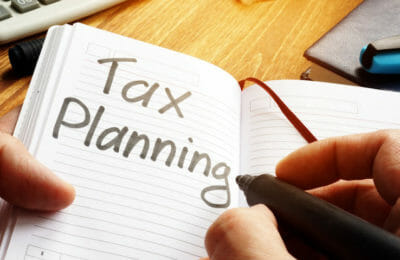Private rental sector reform has been dragging on for some years now. The Conservative government planned to pass a Renters (Reform) Bill. That got kicked into the long grass before the 2024 general election, so it didn’t become law. However, the new Labour government has made rental sector reform a priority. On 11th September 2024, it introduced its new Renters’ Rights Bill to the House of Commons.
The new bill has much in common with the previous, failed, Renters (Reform) Bill. That said, it appears to give tenants rather stronger rights. This will have implications for landlords in the private rental sector.
Given the current government’s large majority, the latest rental sector reform legislation is almost certain to become law. That said, it will almost certainly be amended as it passes through parliament. We’ll update you on any future changes.
The Renters’ Rights Bill in full
If you want to read the Renters’ Rights Bill (as introduced) in full, you can download it here. However, given that it’s 216 pages long, you might want to save it for a rainy day!
That said, we think it’s important to let our landlord clients know the main thrust of the current bill so they can prepare accordingly. We’ve highlighted the main proposed changes under the headings below.
Tenancy reform
These are the key reforms to tenancies and the rules relating to possession.
- Section 21 evictions to be abolished. This is no surprise as it was a key government commitment. So-called ‘no-fault’ evictions will be outlawed. This means, to evict a tenant, you’ll need to use a Section 8 ground for possession. For grounds for possession (and notice periods), see table 1 on this page.
- Fixed-term assured tenancies to end. All tenancies will become periodic. This means tenants will be able to stay in the property until they decide to give two months’ notice.
- A ban on rental discrimination. Landlords will not be able to discriminate against potential tenants on benefits or with children.
Rent reform
The bill will also tighten up rules about rent increases, notably giving tenants more power to challenge rents and restricting what landlords can ask for.
- Rental increase rules to be standardised. Landlords will be able to increase rent once per year to the market rate. The market rate is what rent would be achieved if the property were newly advertised. To do this, landlords will need to issue a ‘Section 13’ notice with at least 2 months’ notice. Tenants will be able to challenge excessive rental increases at a first-tier tribunal. The latter will then determine the market rent. This will never be higher than what the landlord first asked for. Rent increases by other means – such as rent review clauses – will be banned.
- Rental bidding to be outlawed. Landlords and agents will have to publish an asking rent and it will become illegal to accept more than this sum.
- Strengthening rent repayment orders. These will be extended to ‘superior landlords’ and company directors. A superior landlord is defined as ‘a person (whether the owner of the fee simple or a tenant) whose interest is superior to the interest of the competent landlord.’
Standards reform
Another key aspect of rental sector reform relates to housing standards.
- Properties must meet the Decent Homes Standard. This already applies to public sector housing. Failing to meet standards will attract fines of up to £7,000.
- Applying ‘Awaab’s Law’ to the private rental sector. This will set clear timeframes for making homes safe when they contain serious hazards.
- Creating a Private Rented Sector Database. This will contain information for landlords and tenants, as well as help councils target enforcement activity. Landlords will need to be registered in order to use certain possession grounds.
- Strengthening local authority enforcement. There will be extended civil penalties, new investigatory powers and a new requirement for local authorities to report on enforcement activity.
Disputes reform
The final aspect of rental sector reform focuses on tenant / landlord disputes.
- A new Private Rented Sector Landlord Ombudsman. This will be designed to provide quick, impartial and binding resolution for tenants’ complaints. It’s hoped this will reduce pressure on the courts system.
- Landlord-initiated complaints. The government will explore mediation options for these.
What next for rental sector reform?
The new Renters’ Rights Bill still has to progress through several reading in both houses of parliament before it becomes law. It’s expected that this will happen by summer 2025.
There’s no doubt that rental sector reform will make it tougher for landlords. That’s why it makes it so important to get accountancy advice about your portfolio. If you’d like some help, get in touch with one of our buy-to-let specialists today. You may also want to enjoy the excellent benefits of our Landlord Software Platinum Service for MTD.
About Jon Pryse-Jones
Since joining THP in 1978, Jon Pryse-Jones has been hands on with every area of the business. Now specialising in strategy, business planning, and marketing, Jon remains at the forefront of the growth and development at THP.
An ideas man, Jon enjoys getting the most out of all situations, “I act as a catalyst for creative people and encourage them to think outside the box,” he says, “and I’m not afraid of being confrontational. It often leads to a better result for THP and its clients.”
Jon’s appreciation for THP extends to his fellow team members and the board. “They really know how to run a successful business,” he says. He’s keen on IT and systems development as critical to success, and he continues to guide THP to be at the cutting edge and effective.
Read more about Jon Pryse-Jones











